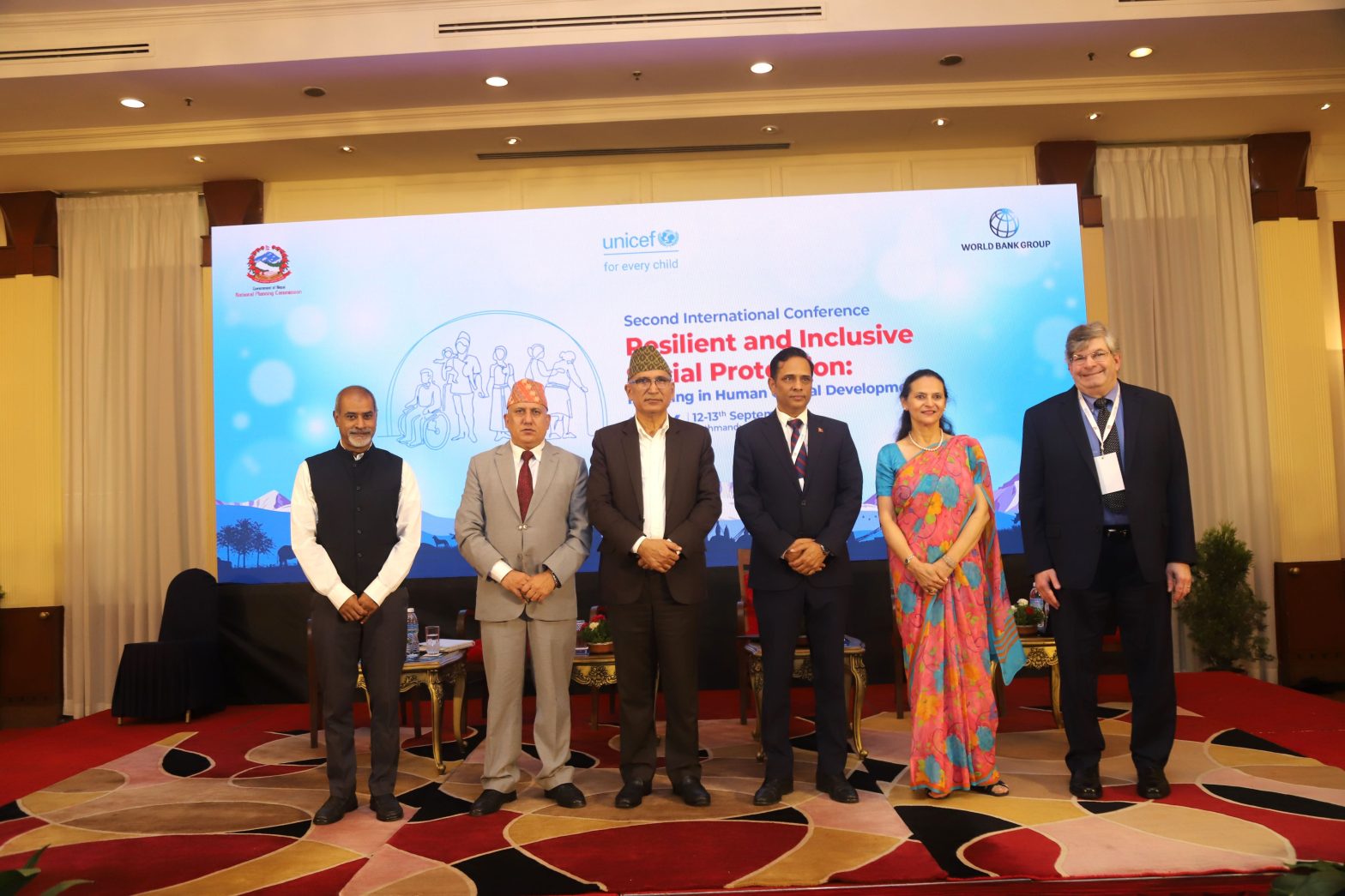Kathmandu: The Government of Nepal National Planning Commission, in partnership with UNICEF and the World Bank, is organizing the second international conference on social protection in Kathmandu today and tomorrow.
Inaugurated by the Honorable Deputy Prime Minister and Finance Minister Bishnu Paudel, the conference titled “Resilient and Inclusive Social Protection: Investing in Human Capital Development” aims to foster critical dialogue on how social protection can be leveraged to reduce poverty, build resilience, and invest in the human capital of future generations.
“This conference comes at a crucial time as Nepal is investing in its human capital,” said Honorable Minister Paudel. “We are committed to building a more inclusive social protection system that serves the needs of all, especially our children and the future generations.”
Nepal is undergoing rapid economic, social, and demographic changes, with approximately 20 per cent of the population still living below the poverty line and significant inequality remaining a concern. Nepal’s Constitution guarantees the right to social security for vulnerable groups, but much of its investment in social protection has focused on the elderly, with limited attention to children and other vulnerable groups.
The Honorable Vice Chairperson of the National Planning Commission, Prof. Dr. Shivaraj Adhikari, stated that “The Government of Nepal, through the Sixteenth Plan, has given high priority to human capital development, and it is necessary to increase investment in children for this purpose.” He highlighted the fact that human development is both a means and an end in the context of the country’s development and emphasized that social protection plays a crucial role in building human capital.
Although the Government of Nepal has been increasing investment in social protection, the investment made in social protection has had only a limited impact on reducing poverty, building human capital, and promoting resilience against shocks and risks that may arise at various stages of the human life cycle.
“By investing in the early years, including through universal child grants, we can break intergenerational cycles of poverty that hold back future generations,” said Sanjay Wijesekera, Regional Director, UNICEF South Asia. “Through this conference, we are not only reaffirming our commitment to the children and young people of Nepal, but we are also challenging ourselves to create a world where every child and young person, no matter his or her circumstances, has the opportunity to thrive and contribute to a brighter, more resilient future.”
The conference builds on the momentum of the 2019 International Conference on Social Protection, which promoted policy debate on strengthening social protection for children and the expansion of the child grant, establishment of an integrated registry, increased use of the cash plus approach, investment in productive employment and social security for the formal and informal sectors.
This year’s conference provides a platform to reflect on key progress in Nepal since 2019 and for knowledge exchange, learning from best practices, and collaboration towards achieving SDG Target 1.3, which calls for implementing nationally appropriate social protection systems for all.
“In the face of economic challenges, global conflicts and climate change, adaptive social protection systems are more critical than ever,” said Preeti Arora, World Bank Operations Manager for Maldives, Nepal, and Sri Lanka. “Effective social protection can buffer vulnerable populations, including women, youth, and children from crises while enabling them to invest in education, healthcare, and other essential services that enhance human capital and their productivity.”
The conference brings together senior representatives from the Government of Nepal, UNICEF, the World Bank, regional and global social protection experts, and key stakeholders from various sectors.
Dr Michael Samson, Director, Economic Policy Research Institute, delivered the conference keynote address on ‘Investment in social protection for human capital, inclusion and resilience – Global Perspective.”
